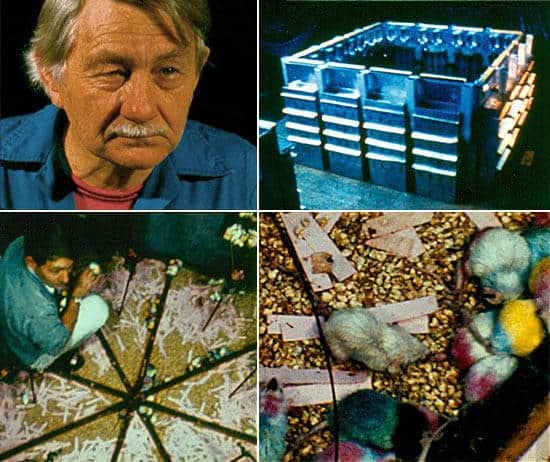Overpopulation and Humanity’s Destiny
If we don’t halt population growth with justice and compassion, it will be done for us by nature, brutally and without pity- and will leave a ravaged world.
By the year 2050, the Earth’s population is estimated to reach a staggering 9.6 billion people. Many scientists would consider this to be overpopulation of the planet. It is currently believed that there are 7.2 billion people on Earth, but this is just a guess. In reality, we don’t really have any idea how many people are on the planet, just a lot of supposedly “good guesses”. And unless we make some major breakthroughs in the fields of energy, ecology, climatology, and agriculture the human race has a good chance of experiencing a severe decline in population, possibly even extinction because of overpopulation. A lot of things need to change in our civilization’s infrastructure if the human race wants to survive for the next millennia and even more if we are to prosper.
I’m not an alarmist. There’s no need to panic. But you should probably reconsider your consumption patterns, because you will be economically pressured to change them in the next 20 years. Especially if you live in the United States. But the world isn’t going to end in the next 6 months. In fact, Earth will be fine, especially in the long run. We live on a planet that is incredibly good at balancing itself, which we are seeing now with the effects of climate change (see my review of ‘Chasing Ice’ if you want some good evidence of what is happening to the glaciers of the planet). But weather patterns are going to get more and more severe unless we can find ways to mitigate the greenhouse gas effect and humanity’s consumption of fossil fuels.
A Tipping Point for Humanity’s Population?
It is entirely possible that human’s have reached what scientists call “peak oil”. At this point, we might be running out of oil, even though in the last 6 months we have isolated and reproduced a fungus that can produce petroleum. We might also be able to clean up the world’s largest oil spills with a different type of fungus. Advancements in science are what is going to save us. If you don’t know about the scientific method, you should read this article.
All of these developments can be attributed to the massive growth in human population at the cost of our environment. These problems WOULD NOT exist if humanity was better at living symbiotically with our environment. Yes, I say this with 100% certainty. We tend not to look at situations holistically and see only what is in front of us. In this overpopulated state, we need to either mitigate the effects of our oil use while simultaneously finding sustainable sources of it, or we need to find an alternate, sustainable fuel source for the world’s transportation.
Alan Watts said that the fundamental problem with the current state of society is man’s isolation from nature. This allows for our overpopulation of the planet. Things like A/C, cars, roads, airplanes, deforestation, warehouses, skyscrapers, and dams are all examples of destruction of the environment rather than cultivation. Some of these things can be symbiotic with nature if architected properly (ie climate regulation, terraforming, sustainable fuels, nuclear fusion, etc.). Watts said that in the 60s.
The problem with humans is that we view ourselves as separate from our environment, when in fact the two are the same. Religion is a huge cause of this. For some reason, we feel like we are better than our environment, better than animals, because god made us special. In my last article on human microbiota, I explained how humans have a hole inside of us, called the gastrointestinal tract or gut, that is really a part of the outside environment. So in reality, humans and our environment are the same thing. It is largely our ego and search for control that has led us to believe that we are ‘superior to’ or greater than our environment.
The problems are rather simple. Yet people have a tendency to be so over-reactive to seeing how humans have affected our environment. This allows news companies and especially shitty internet journalism to get an emotional rise out of us. And after this emotional reaction, we tend to become inactive and hopeless, rather than adjusting our behavior. I’ve witnessed this personally within myself. I waste energy on an emotional reaction, rather than thinking about how much waste I create on a daily basis. There are examples in our modern culture. Water consumption in southern California is an excellent example. Some people don’t even believe that there is really a drought.
Americans, as only 5% of the world’s population, use 24% of the world’s energy; some sources estimate the average American uses as much as 160 gallons of water a day. So instead of writing emotional facebook posts, being reactive and emotional about the issue take matters into your own hands; take shorter showers, try to drive less (obviously you have to drive to work and to get your kids to soccer and all that stuff because our infrastructure isn’t setup symbiotically). Try to use less energy, wash only dirty clothes, turn off your lights. Then you can stop worrying about our planet because that’s all you can do. Manage yourself.
We need to consider what it might be like if we had to live in 100% unity with our environment; which sooner or later will become a necessity if we are to survive with such a large population. Cities will be rebuilt. Freeways will be redesigned. We are already seeing the beginning of some amazing developments.
Answers to the problem of overpopulation?
Nuclear fusion might be the answer to our energy problems, but that technology is expensive and we’re going to have to wait for it. However, creating and harnessing the power of stars is how we will survive for the next millennia. There are a few awesome projects happening that might excite you for the future, rather than scare you away from it. The international thermonuclear reactor project is an exciting project underway and Lockheed Martin has somewhat suspiciously said that they have an even more compact reactor on the way (the scientific community is very skeptical because they haven’t yet released data). Our ingenuity will be the key to our survival.
I am trying to say that hopelessness is a silly conclusion and that hope is key to survival and prosperity. One way to inform yourself of some of the negative possibilities in our future is to learn about John Calhoun’s mouse paradise experiments on overpopulation. It is a concept known as the behavioral sink, or societal collapse due to overpopulation. However, even Calhoun left his studies with hope for the future of humanity, especially considering that there were rats that seemed to be resilient to the effects of overpopulation. His studies involved creating mouse utopias, then allowing the mice to overpopulate. In his studies he found
“Many [female mice] were unable to carry pregnancy to full term or to survive delivery of their litters if they did. An even greater number, after successfully giving birth, fell short in their maternal functions. Among the males the behavior disturbances ranged from sexual deviation to cannibalism and from frenetic overactivity to a pathological withdrawal from which individuals would emerge to eat, drink and move about only when other members of the community were asleep. The social organization of the animals showed equal disruption. […]
The common source of these disturbances became most dramatically apparent in the populations of our first series of three experiments, in which we observed the development of what we called a behavioral sink. The animals would crowd together in greatest number in one of the four interconnecting pens in which the colony was maintained. As many as 60 of the 80 rats in each experimental population would assemble in one pen during periods of feeding. Individual rats would rarely eat except in the company of other rats. As a result extreme population densities developed in the pen adopted for eating, leaving the others with sparse populations.
[…] In the experiments in which the behavioral sink developed, infant mortality ran as high as 96 percent among the most disoriented groups in the population.”
-John B Calhoun from “Population density and social pathology”(1970). California medicine 113
We have Hope for the Future
Over-reactivity from fear is something you should actively fight within yourself. Overpopulation is a problem that humanity can work together to solve. There is no need for fear. Find hope, reasons to belief in your own ability to consume less, if no one else’s. Fear and panic are the enemies to social order. Stop believing the news, especially internet articles aimed at reactivity. That’s what they want, to shock you into reading. If you can fight your fear with hope and action you will lead yourself to more action oriented at personal results, therefore affecting the collective in the greatest possible way that you personally can. See what you can do, challenge yourself, experiment with alternate lifestyle behaviors. You’ll surprise the shit out of yourself 😉

